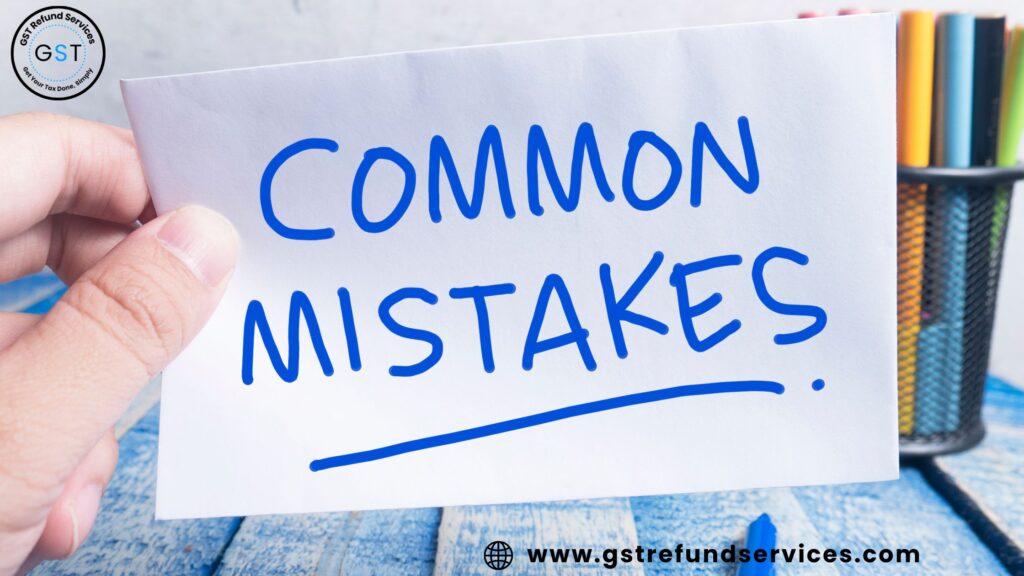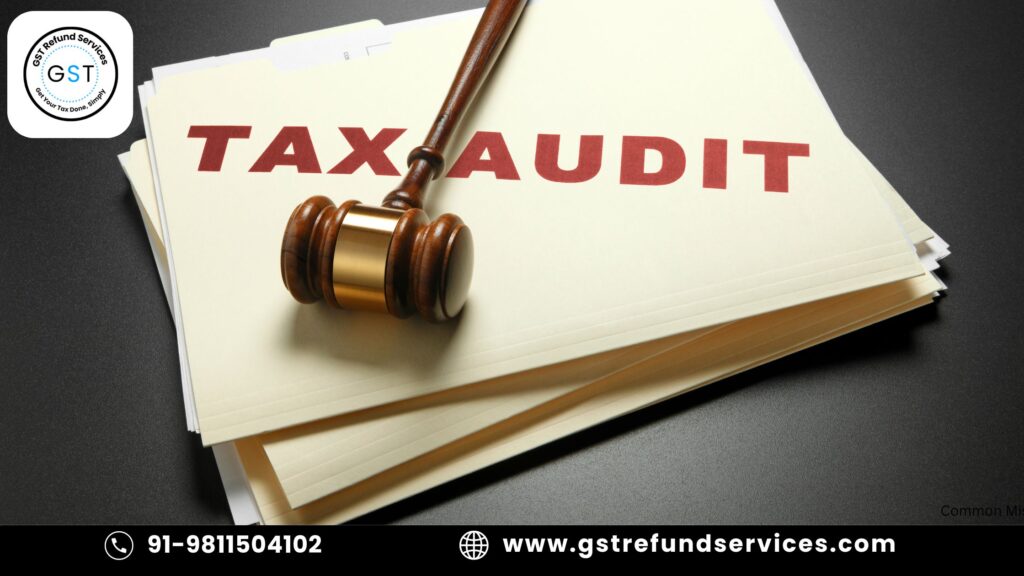
GST assessments are a vital aspect of the Goods and Services Tax (GST) compliance method. They ensure that businesses adhere to GST regulations, maintain accurate records, and pay the correct amount of tax. However, navigating a GST audit can be challenging, and mistakes during the process can lead to significant penalties and compliance issues. Understanding common errors and how to avoid them can help businesses prepare effectively and ensure a smooth audit experience. Here’s a detailed guide on the common mistakes made during GST audit and strategies to avoid them.
Common Mistakes in GST Audits
1. Inaccurate or Incomplete Documentation
One of the most frequent mistakes during a GST audit is the submission of inaccurate or incomplete documentation. GST authorities scrutinize invoices, tax payments, and credit claims, and any discrepancies can lead to penalties.
- Solution: Maintain comprehensive and accurate records of all transactions, including purchase invoices, sales invoices, tax payment receipts, and ITC claims. Ensure that your documentation aligns with your GST returns and that all invoices contain the required details, such as GST numbers, amounts, and descriptions.
2. Failure to Reconcile GST Returns
Reconciliation between different GST returns (GSTR-1, GSTR-2A, GSTR-3B, etc.) is crucial. Many businesses fail to reconcile their returns, leading to mismatches and discrepancies that can trigger audit issues.
- Solution: Regularly reconcile your GST returns with your books of accounts. Verify that the data in your GSTR-1 (outward supplies) matches with GSTR-2A (inward supplies) and ensure consistency with GSTR-3B (summary of outward and inward supplies).
3. Incorrect ITC Claims
Collecting inappropriate or invalid Input Tax Credits (ITC) is a frequent problem. Businesses may claim ITC on blocked credits, or miss out on eligible credits due to incorrect documentation or understanding of the rules.
- Solution: Ensure that ITC claims are accurately recorded and supported by valid invoices. Familiarize yourself with the list of blocked credits and confirm that ITC is claimed only on eligible inputs used for taxable supplies. Regularly review ITC claims to correct any errors before the audit.
4. Non-compliance with Reverse Charge Mechanism
The Reverse Charge Mechanism (RCM) requires the recipient of goods or services to pay the tax instead of the supplier. Businesses often fail to comply with RCM requirements, leading to audit issues.
- Solution: Track and record all transactions under RCM accurately. Ensure that the tax is paid and documented as required, and maintain proper records for all reverse charge transactions.
5. Not Updating Records for Amendments
GST laws allow for amendments to be made in the returns. Failing to update records for these amendments or missing out on revised returns can create discrepancies.
- Solution: Keep your records updated with any amendments made to your GST returns. Ensure that any changes or corrections are reflected in your updated returns and documented appropriately.
6. Ignoring Tax Payments and Liabilities
Errors in tax payments or overlooking liabilities can cause discrepancies during an audit. This includes missed payments or incorrect calculation of tax dues.
- Solution: Regularly review and verify tax payments to ensure they match the amounts reported in your GST returns. Maintain a clear record of all tax payments and ensure timely settlement of any liabilities.
7. Inadequate Internal Controls
Weak internal controls can lead to errors and inefficiencies in managing GST compliance. Inadequate controls may result in incorrect tax calculations, missed credits, or improper documentation.
- Solution: Implement robust internal controls and processes for GST compliance. Regularly review and update your procedures to ensure accuracy in tax calculations, documentation, and reporting.
Tips for Avoiding GST Audit Mistakes
1. Regular Internal Audits
Conduct regular internal audits to identify and correct any discrepancies or compliance issues before the GST authorities do. This proactive approach helps in maintaining accurate records and minimizing errors.
2. Training and Awareness
Educate your finance and accounting teams about GST regulations, documentation requirements, and audit procedures. Training ensures that your staff is aware of the compliance requirements and can handle audits effectively.
3. Consult Professionals
If your GST compliance and audit processes seem complex, consider consulting with GST professionals or tax consultants. They can provide expert guidance, help with reconciliation, and ensure that your documentation and claims are accurate.
4. Stay Updated on GST Regulations
GST regulations are subject to frequent changes. Stay informed about the latest updates and amendments to ensure that your business remains compliant with current laws.
GST audits are a critical aspect of tax compliance, and avoiding common mistakes is essential to ensure a smooth audit process. By maintaining accurate documentation, reconciling returns, claiming eligible ITC, and adhering to compliance requirements, businesses can minimize the risk of penalties and compliance issues. Regular internal audits, staff training, and professional consultation can further enhance your preparedness for GST audits and help you navigate the complexities of GST compliance effectively.


